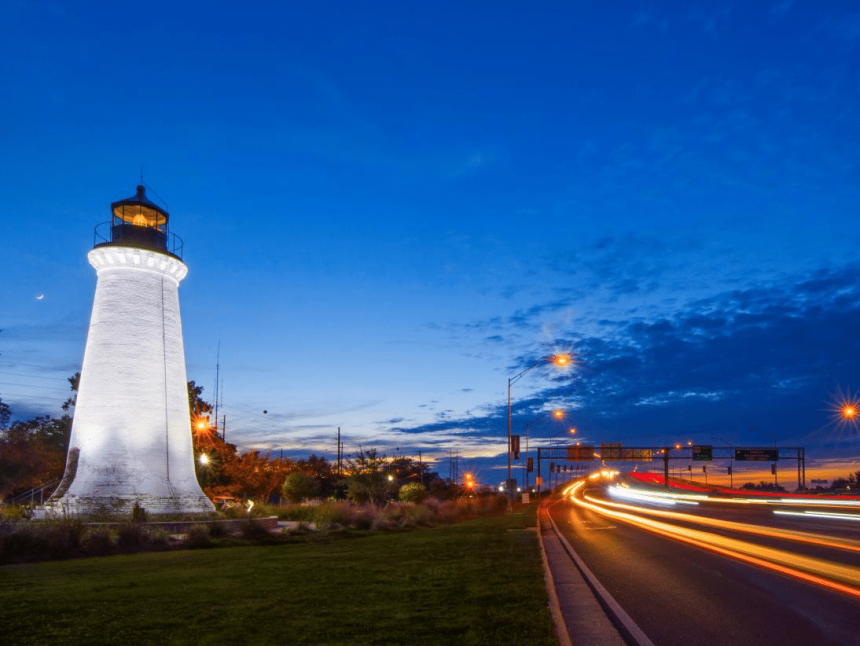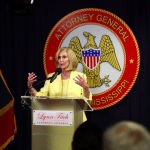I absolutely love this place. I’ve dedicated my heart and soul to Coastal Mississippi for most of my life, and I’m proud of what we have accomplished, especially since Hurricane Katrina. Yet, as we stand on the brink of a new chapter, I feel a growing sense of urgency about our future. I wish I could fully convey the depth of my emotions through my words, but I will do my best. So, please, hang in there with me.
Let me be clear: this isn’t about placing blame. This is about envisioning and securing a brighter future for Coastal Mississippi, an area I often refer to as Mississippi’s most important economic engine. My concerns stem from a lifetime of civic engagement, countless leadership roles along the way, and over 1,400 enlightening conversations on my SuperTalk Mississippi radio show. I’ve seen the potential we have, and I believe in our ability to achieve so much more.

Coastal Mississippi is a region overflowing with possibilities, but we must face the reality that we are underperforming in key areas compared to other Gulf South regions. It’s time to roll up our sleeves and push harder to reach our true potential — not just for ourselves, but for our children and generations to come.
As I look at the landscape ahead, I see challenges on the horizon. However, I also see immense potential within our grasp. Our destiny is in our hands, and together, if we act decisively, we can seize the moment.
I urge you to keep reading.
Let’s take a moment to appreciate the tireless efforts of our economic development organizations across the three coastal counties. Their hard work has brought us this far, but now we must elevate our expectations and strategies to harness our strengths and prepare for the challenges ahead.
The Gulfport-Biloxi-Pascagoula metropolitan area, with a population of over 420,000, has so much going for us, yet we find ourselves underperforming compared to other Gulf South metropolitan areas. Our median household income stands at $56,348 — while that may sound decent, it is not enough to keep pace with the opportunities unfolding around us.
We can do better.
Our economy currently relies on a few key sectors: gaming, hospitality, military, and shipbuilding. While these industries are vital, our lack of diversification poses risks during economic downturns, particularly in the face of natural disasters and the rapid technological advancements that are reshaping our world. We must embrace these changes and adapt.
There are scary possibilities: critical threats that could impact our economic stability and growth potential.
The gaming and hospitality sectors are increasingly vulnerable to competition from neighboring states and changing consumer preferences. Younger generations prefer different forms of entertainment (such as online gaming and sports betting); and as gaming options grow across the country, traditional casino revenue could decline.
Our military bases are essential to the health of our region. However, potential federal budget cuts and shifts in defense strategies — like significant advancements in unmanned drones — may affect local installations and military-related manufacturing facilities like Ingalls. Additionally, the rise of commercial spaceflight poses challenges to Stennis Space Center, as private companies increasingly compete for contracts and funding. Look at what SpaceX is doing in Brownsville, Texas now.
This is another big one: the rise of artificial intelligence presents several future significant challenges for our region, particularly in job displacement. Automation may lead to the loss of traditional roles in key sectors of our economy. AI systems will increasingly take over customer service, operational tasks, and will disproportionately favor those with advanced technical skills, widening the income and skills gap here, which is already big. Believe me, this is a looming threat. And if we don’t accept it and act, it will be like newspapers ignoring the Internet and refusing to embrace the digital tsunami, not adapting to a digital world. Too many newspapers have died as a result. We must embrace change.
To secure a prosperous future, we need to confront these challenges head-on. The urgency to act has never been greater.
Our competitors in the Gulf South have diversified their economies, attracted higher-paying jobs, and developed robust strategies for growth. And they do it with a unified voice. We must follow suit by actively seeking the next big opportunity — a large manufacturer, a data center, a cluster of innovative businesses in the blue economy and more are possibilities. We need to set audacious goals and aim for the home runs that will propel our region forward. We will not win with singles and doubles, although those are still important, too. Hancock-Whitney CEO and longtime community leader John Hairston and I discussed this on my show. He believes this is one of our biggest challenges moving forward.
This is not a critique of our current efforts; it’s a rallying cry for action. We must unite in our vision for the future, with dogged determination and a shared commitment to progress. To thrive in today’s economy, we must move from fragmented approaches to a cohesive regional strategy that leverages our collective strengths. Not having a unified regional approach is a big gap for our region compared to our regional competitors…a very big gap.
As Joe Max Higgins, CEO of Mississippi’s Golden Triangle Development Link, aptly noted, Coastal Mississippi is an “800-pound gorilla.” Yet, we must recognize that this potential often remains untapped.
We also face other challenges, such as a lack of shovel-ready and utility-served industrial parks in areas less prone to flooding. This is why we should consider this region as the six southern counties, looking to future industrial parks in the northern parts where infrastructure can be developed. It’s time for strategic collaboration among all stakeholders at a level we have yet to achieve.
Navigating the politics of alignment in our region is very complex. The number of political subdivisions here is mind-boggling compared to competitor regions and is often why discussions around regionalism fail. The resistance to change here is very significant. However, the successes of the Golden Triangle Development Link remind us that with time, effort, and political capital, we can overcome these hurdles. The Gulf Coast Business Council is vital to our success in this endeavor. This is why we created this organization comprised of the top employers in our region, to tackle the big things on a regional level.
We need a regional effort with a clear mission that highlights the unique strengths of Coastal Mississippi. Joe Max’s success has been driven by a focused approach to megasite development. We must articulate a regional mission that works for us and create organizations to tackle our specific challenges. Where there’s a will, there’s a way.
The collaboration we need is significant, but we already come together to support tourism, military bases, and educational institutions like Mississippi Gulf Coast Community College and the University of Southern Mississippi. We have critical assets —Ingalls, Keesler, the Naval Construction Battalion Center, world-class casinos, Stennis Space Center, ports, and more — that form a strong economic foundation.
It’s important to recognize that while competition among our coastal counties can drive innovation, we must also present a united front to attract investments. How do we do this regionally?
We must address three challenges I discussed at the One Coast Awards ceremony. First, in a internally-competitive environment like Coastal Mississippi, many leaders focus on protecting the status quo, which limits our growth potential. We must strive for more from ourselves and our elected officials; a trajectory is essential for success. There is no trajectory in the status quo.
Second, we need to combat complacency. As Jerry St. Pe’ noted, complacency drains our energy and keeps us from dreaming bigger. Other regions are counting on our complacency; we cannot afford to give them that advantage.
Finally, we need visionary leaders who can recognize and embrace our potential. Many communities struggle to cultivate this type of leadership, but we must come together to develop leaders who are committed to a unified vision.
The Gulf Coast Business Council, which I helped establish after Hurricane Katrina, must play a pivotal role in this effort. The talented CEO leaders involved in the council are crucial to our region’s success. This is their challenge. If not them, then who?
Let’s celebrate our accomplishments while recognizing areas for growth. The diversity and resource density of Coastal Mississippi are enviable. We must harness these strengths to fuel our economic progress.
Imagine a Coastal Mississippi where innovation thrives, businesses are eager to invest, and residents enjoy an incredible quality of life. This vision is within reach if we have the courage to act and collaborate.
To the mayors, supervisors, lawmakers, business leaders, and visionaries reading this: the time to act is now. We cannot wait for someone else to lead the way. The future of Coastal Mississippi depends on your willingness to embrace change and champion a united vision for economic development.
This is our moment. The opportunity to build a stronger, more resilient, and competitive Coastal Mississippi is right in front of us. Let’s rise to the occasion and create a future we can all be proud of!







